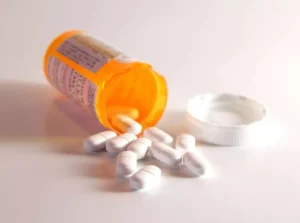
Getting drunk with your buddies, for example, even though you know your wife will be very upset, or fighting with your family because they dislike how you act when you drink. Experiencing repeated legal problems on account of your drinking. For example, getting arrested for driving under the influence or for drunk and disorderly conduct. Repeatedly neglecting your responsibilities at home, work, or school because of your drinking. For example, performing poorly at work, flunking classes, neglecting your kids, or skipping out on commitments because you’re hung over.
Wondering If You Yourself Could Have a Drinking Problem?
- They may start drinking to cope with stressful events like losing a job, going through a divorce, or dealing with a death in their family or a close friend.
- Understanding the signs of alcohol abuse can help you identify a problem in yourself or others.
- Unlike alcoholics, alcohol abusers have some ability to set limits on their drinking.
- You might not recognize how much you drink or how many problems in your life are related to alcohol use.
- However, there are a number of common symptoms to be aware of that can assist in recognising alcoholism.
Today, we know that the symptoms of alcoholism can vary from one person to the next. Because the condition is progressive, these symptoms may increase over time in terms of the number of symptoms, their severity, and how to recognize signs and symptoms of alcoholism and alcohol abuse their impact. Teenagers and young adults who drink may be at particular risk for alcohol overdose. Research shows that teens and college-age young adults often engage in binge drinking and high-intensity drinking.

The Dangers Of Alcoholism
Alcohol is, without question, the most commonly used and abused substance in the United States. In 2021 alone, 67% of adults reported using alcohol during the year, and 84% reported alcohol use at some point in their lives. Unfortunately, while many adults find themselves drinking responsibly, there are millions that struggle with alcoholism. Celebrating at parties, cheering a favorite sports team, and enjoying get-togethers after work are common ways to relax or be with friends. For some people, these occasions may also include drinking—even binge or high-intensity drinking.

Physical symptoms of alcohol misuse
But even if you’re able to succeed at work or hold your marriage together, you can’t escape the effects that alcoholism and alcohol abuse have on your personal relationships. Drinking problems put an enormous strain on the people closest to you. As soon as you take a sip of alcohol, it increases your blood alcohol concentration (BAC) level. The higher that BAC goes, the more likely you are to show outward signs of impairment. Other early signs of alcoholism include blackout drinking or a drastic change in demeanor while drinking, such as consistently becoming angry or violent.
Understanding Alcohol Use Disorder

Also, a healthy diet can help undo damage alcohol may have done to the person’s health, like weight gain or loss. When is it common in society, it can be hard to tell the difference between someone who likes to have a few drinks now and then and someone with https://ecosoberhouse.com/ a real problem. AUD involves the continued use of alcohol despite the adverse effects it may have on a person’s life. Options may include a combination of psychiatric support, medication, or alcohol misuse support groups. According to a 2019 study, people with AUD have a heightened risk for depressive disorders. These are the most common co-occurring psychiatric disorders.
- If you’re using alcohol as a crutch to simply get through the day, then your relationship with alcohol is probably not the healthiest.
- The signs and symptoms of alcohol addiction, also known as ‘alcoholism’ or ‘alcohol use disorder’, can vary from person to person.
- In order for treatment to work, the person with an alcohol addiction must want to get sober.
- Other times, it gradually creeps up on you as your tolerance to alcohol increases.
- Alcohol changes your brain chemistry, and when you drink heavily over a long period of time, your brain tries to adapt.
Think about whether you lie to cover your drinking, or often feel guilty about it. Do you feel like you need to drink to relax, or do you often blackout while drinking? These can be representative of a potential alcohol abuse problem. Many of the symptoms and signs of alcohol abuse that are listed above may be indicative of alcohol use disorder (AUD). In order to be diagnosed with an AUD, people must meet criteria that are outlined in the Diagnostic and Statistical Manual of Mental Disorders (DSM). People who meet two of 11 criteria during a 12-month period may have an AUD, and severity is classified as mild, moderate or severe.

